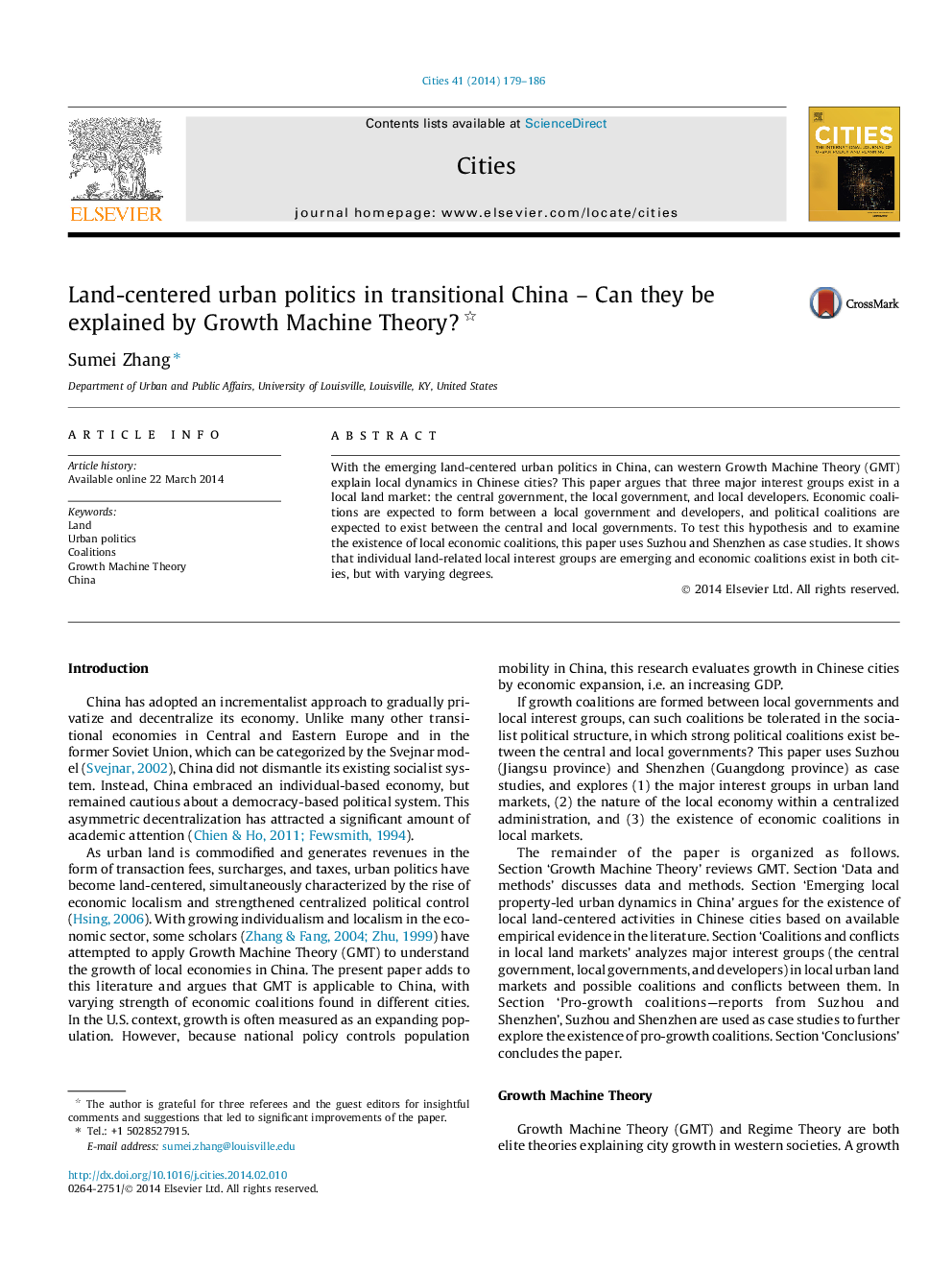| Article ID | Journal | Published Year | Pages | File Type |
|---|---|---|---|---|
| 1008278 | Cities | 2014 | 8 Pages |
•The paper argues for the applicability of Growth Machine Theory to explain urban growth in China.•Economic coalitions are forming between a local government and developers.•Suzhou and Shenzhen are used as case studies to test the above hypothesis.
With the emerging land-centered urban politics in China, can western Growth Machine Theory (GMT) explain local dynamics in Chinese cities? This paper argues that three major interest groups exist in a local land market: the central government, the local government, and local developers. Economic coalitions are expected to form between a local government and developers, and political coalitions are expected to exist between the central and local governments. To test this hypothesis and to examine the existence of local economic coalitions, this paper uses Suzhou and Shenzhen as case studies. It shows that individual land-related local interest groups are emerging and economic coalitions exist in both cities, but with varying degrees.
